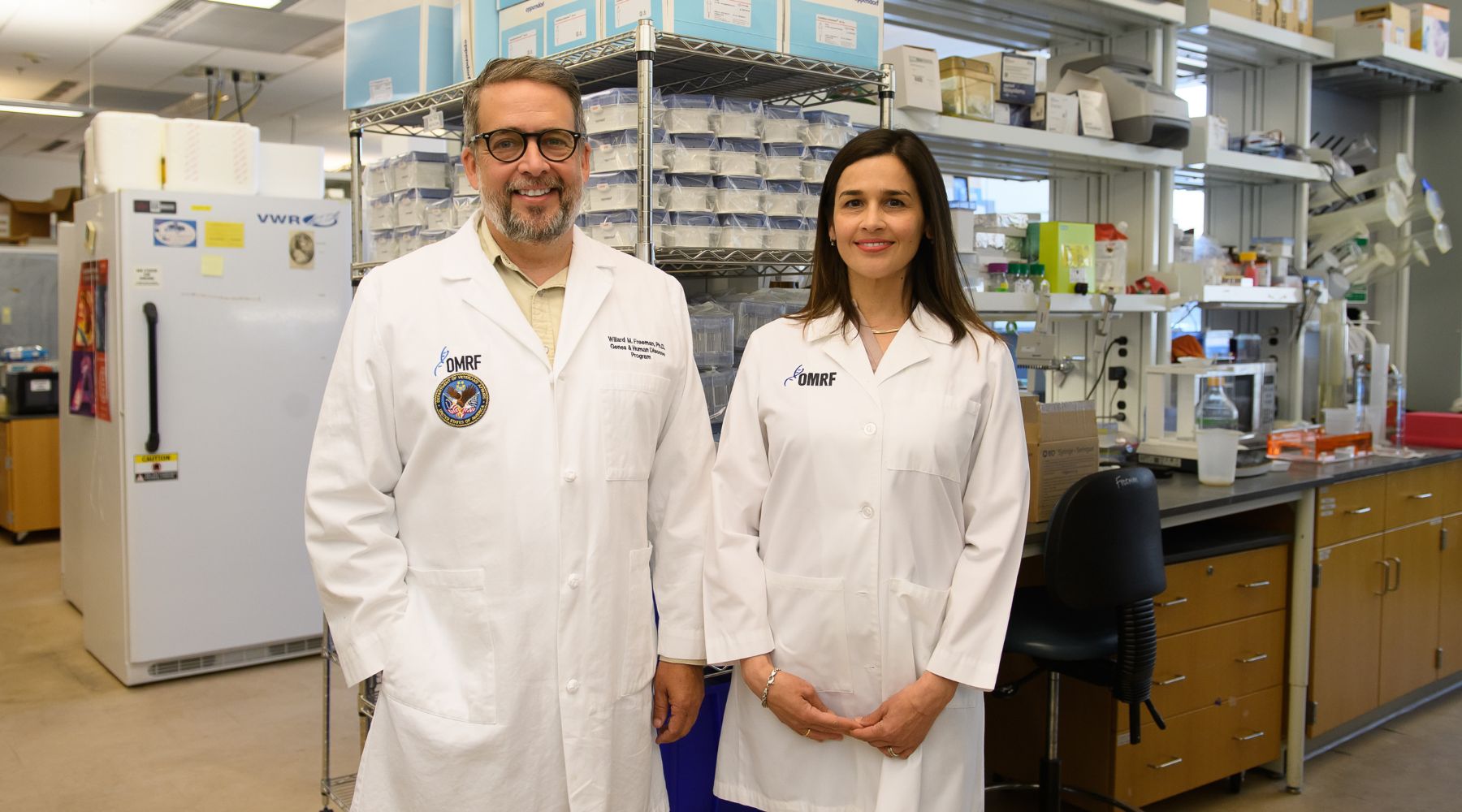Can switching diets prevent the most common form of vision loss in older Americans? The National Institutes of Health has awarded the Oklahoma Medical Research Foundation a $2.5 million grant to find out.
OMRF scientists Bill Freeman, Ph.D., and Ana Chucair Elliott, Ph.D., expect their research to reveal that a ketogenic diet can stop the changes in retinal cells that precede age-related macular degeneration (AMD).
An estimated 11 million Americans have AMD, making it the leading cause of vision loss among adults over age 50. Among those 75 and older, the risk of developing AMD is 1 in 3. While it doesn’t cause complete blindness, AMD involves permanent damage to the part of the retina that controls sharpness, color and fine details of what we see.
Freeman’s lab studies how brain aging is affected by changes in the way DNA is organized and used. These changes are believed to be rooted in behavioral and environmental causes. His lab has found these changes can lead to age-related issues, including cognitive decline and Alzheimer’s.
“The retina is made up of neurons and very similar cell types to the cells in your brain,” Freeman said. “So, this study links to our normal focus because, in a sense, the retina is a part of your central nervous system that’s peeking out from your face.”
The study aims to build upon a recent discovery by another OMRF lab. Scientist Scott Plafker, Ph.D., found that cruciferous vegetables like broccoli, kale and cauliflower show potential to preserve the retinal cells that die in AMD. Those vegetables are staples of a ketogenic diet, which is high in fat and low in carbohydrates. It includes meat, nuts, olive oil, berries and non-starchy vegetables but not grains, corn, sweets, flour-based products or high-carb fruits like bananas and grapes.
“We know that Western diets increase the risk of developing macular degeneration,” Chucair Elliott said. “We hope to find that we can reduce that risk, even after long-term consumption of ultra-processed foods, by switching to a keto diet.”
Plafker and fellow OMRF scientist Michael Stout, Ph.D., also will contribute to this study. The five-year grant, No. 1R01EY034946-01A1, was awarded by the National Eye Institute, part of the NIH.



